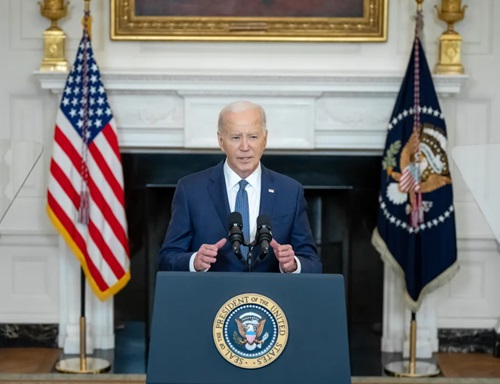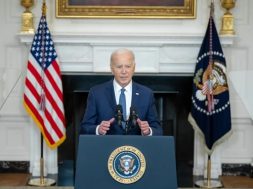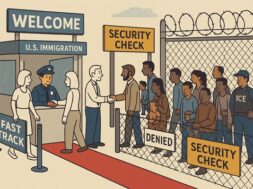
Edrea Davis – In a bid to address ongoing challenges at the Southern border, the Biden-Harris Administration has announced a series of executive actions aimed at improving border security and reforming the immigration system. However, the administration emphasizes that these measures are not a substitute for comprehensive Congressional action, which is still needed to secure the necessary personnel and funding for long-term solutions.
Key Executive Actions
Bar on Unlawful Asylum Seekers President Biden has issued a proclamation under Immigration and Nationality Act sections 212(f) and 215(a), which suspends the entry of noncitizens who unlawfully cross the Southern border. This is supported by an interim final rule from the Departments of Justice and Homeland Security, restricting asylum for these individuals. These measures are intended to be temporary, activated during periods of overwhelming border activity, and include exceptions for humanitarian cases such as unaccompanied children and trafficking victims.
Strengthening Asylum Screening The Department of Homeland Security (DHS) has proposed a rule to expedite the removal of migrants who pose public safety or national security risks. This aims to reduce prolonged and costly detentions and enhance security by delivering timely consequences for those without a legal basis to stay in the U.S.
Accelerating Immigration Case Resolutions A new “Recent Arrivals” docket has been introduced by the Departments of Justice and Homeland Security to expedite the resolution of immigration cases for migrants crossing the Southern border illegally. This process is designed to quickly remove those without valid claims and grant protection to those who qualify. Although this measure is a step towards reforming the overwhelmed immigration system, a more efficient framework requires Congressional support and funding.
Visa Revocations The Department of State has imposed visa restrictions on executives of Colombian transportation companies profiting from smuggling migrants by sea. Additionally, over 250 members of the Nicaraguan government and non-governmental actors, along with their families, have had their visas revoked for facilitating migrant transit visas for unlawful entry into the U.S. Similar actions were previously taken against charter airline executives.
Efforts to Combat Human Smuggling
Anti-Smuggling Rewards Initiative The Departments of State and Justice have launched an initiative offering financial rewards for information leading to the identification, arrest, or conviction of key human smuggling figures. This initiative aims to dismantle smuggling networks that exploit migrants traveling through Central America and across the Southern border.
Increased Penalties and Prosecutions The Department of Justice will seek higher penalties for human smugglers, reflecting the severe impact of their activities. Additionally, more prosecutors and support staff will be deployed to border U.S. Attorney’s Offices to enhance immigration-related prosecutions. This includes assigning DHS Special Assistant U.S. Attorneys and partnering with federal agencies to allocate resources effectively.
Enhancing Immigration Enforcement
Increased Repatriation and Border Agents DHS has increased the number of agents at the Southern border and is referring more individuals for expedited removal. The department is also operating more repatriation flights than ever before, having removed or returned over 750,000 people in the past year, the highest number since 2010. Collaboration with regional partners aims to prevent irregular migration, support local integration opportunities, and increase lawful migration pathways.
Combating Fentanyl Trafficking
Seizures and Extraditions Border officials have seized more fentanyl in the past two years than in the previous five combined. The administration has added 40 drug detection machines at entry points and seeks additional funding to install 100 more. Joint efforts with Mexico have led to the extradition of Nestor Isidro Perez Salaz, known as “El Nini,” for his role in fentanyl trafficking and human rights abuses. These actions highlight the administration’s commitment to tackling the synthetic drug epidemic and holding trafficking organizations accountable.
Conclusion
While the Biden-Harris Administration’s executive actions represent significant steps towards border security and immigration reform, they underscore the necessity of Congressional action. Only through comprehensive legislative support can the critical personnel, funding, and systemic changes needed for lasting solutions be secured.






